Writing Inspire

How do athletes use their experiences in sports to inspire their writing ?
Athletes often draw from their experiences in sports to inspire their writing. Here are some ways in which they do so: 1. Overcoming Adversity: Athletes face numerous challenges and setbacks throughout their careers, such as injuries, losses, and pressure to perform. These experiences can serve as powerful sources of inspiration for their writing. They can share stories of how they overcame these obstacles and the lessons they learned along the way. 2. Teamwork and Collaboration: Sports often require teamwork and collaboration, which can translate into valuable insights for writing about relationships, communication, and leadership. Athletes can write about the importance of working together towards a common goal, trusting one another, and supporting each other through difficult times. 3. Discipline and Perseverance: The discipline required to excel in sports can be applied to other areas of life, including writing. Athletes can write about the value of perseverance, dedication, and hard work, and how these qualities have helped them achieve success both on and off the field. 4. Mental Toughness: Sports often test an athlete's mental toughness, requiring them to stay focused, motivated, and resilient in the face of adversity. These experiences can provide valuable insights for writing about resilience, determination, and overcoming self-doubt. 5. The Pursuit of Excellence: Athletes strive for excellence in their chosen sport, constantly pushing themselves to improve and reach new heights. This pursuit of excellence can inspire writers to strive for greatness in their craft, always seeking to refine their skills and create something truly exceptional. 6. Embracing Failure: In sports, failure is inevitable. Athletes learn to embrace failure as an opportunity to learn and grow, rather than a reason to give up. This mindset can be incredibly valuable for writers who may face rejection, criticism, or creative blocks. By embracing failure as a necessary part of the process, athletes can inspire writers to keep pushing forward despite setbacks. 7. Finding Inspiration in Routine: Athletes often have rigorous training routines that require them to push themselves physically and mentally every day. This disciplined approach to daily practice can inspire writers to establish their own routines and rituals that help them stay focused, productive, and creative. 8. The Power of Mindset: The mindset required to succeed in sports can also be applied to writing. Athletes must believe in their ability to achieve their goals, even when faced with seemingly insurmountable challenges. This positive mindset can inspire writers to believe in their own abilities and persevere through difficult times. 9. Celebrating Triumphs: Finally, athletes often celebrate their triumphs and accomplishments, no matter how small they may seem at the time. These moments of joy and pride can serve as powerful reminders for writers that every step forward is worth celebrating, and that progress comes from consistent effort and dedication over time.

Can playing sports improve one's writing skills ?
Playing sports can indirectly improve writing skills by enhancing focus, creativity, and reducing stress. It also promotes discipline, teamwork, and resilience, qualities beneficial for writing. Incorporating sports into a routine can inspire more engaged and authentic writing.

How do I develop a unique writing style ?
The text provides a detailed guide on "How to Develop a Unique Writing Style." It outlines five key steps: reading widely, practicing writing regularly, experimenting with different techniques, finding your unique voice, and seeking feedback from others. The author emphasizes that developing a distinctive style takes time and effort but can significantly enhance one's writing impact.

How can I improve my writing skills ?
The text provides a comprehensive guide on how to improve writing skills. It outlines strategies such as reading regularly, practicing writing daily, learning grammar and style guides, getting feedback, revising and editing, studying writing techniques, setting realistic goals, finding one's voice, staying motivated, and keeping the learning process continuous. Each strategy is further elaborated with specific actions or methods that can be adopted. The emphasis is on consistency and openness to learning from both successes and failures in the writing journey.
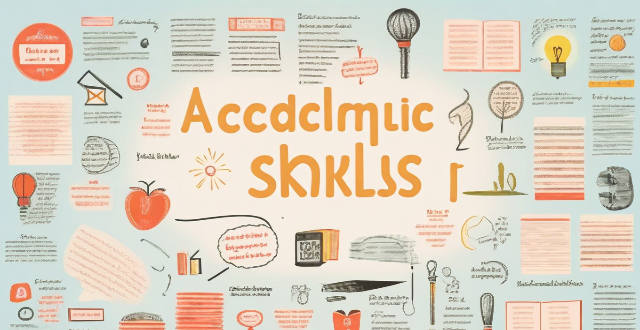
How do I improve my academic writing skills ?
Improving your academic writing skills is crucial for success in higher education. Tips include reading extensively, practicing regularly, seeking feedback, planning and organizing ideas, using appropriate language and tone, following proper formatting guidelines, and editing and proofreading carefully. By following these tips, you can enhance your writing abilities over time.

In what ways do professional athletes inspire fashion choices ?
Professional athletes influence fashion choices by showcasing functional and stylish attire on and off the field. Their unique style, confidence, and performance inspire fans to adopt similar fashion choices in their daily lives. Athletes' uniforms, footwear, casual wear, accessories, grooming habits, brand endorsements, and social media presence all contribute to this inspiration. By paying attention to these aspects of an athlete's style, individuals can draw inspiration for their own personal style.

How do I make my writing more engaging and interesting to read ?
Writing is an art form that requires practice, patience, and a willingness to experiment with different techniques. To make your writing more engaging and interesting to read, consider using vivid language, telling stories, using active voice, varying sentence structure, incorporating humor, and showing rather than telling. These strategies can help bring your writing to life and keep readers interested.
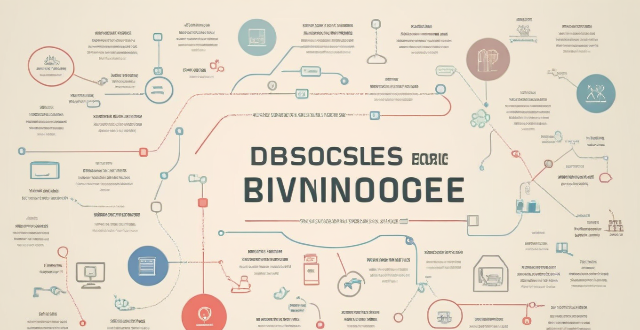
What is the difference between academic and non-academic writing ?
The article discusses the differences between academic and non-academic writing in terms of purpose, audience, style, structure, and language features. Academic writing aims to convey complex ideas and research findings to a specialized audience using formal, objective, and precise language, while non-academic writing focuses on informing, entertaining, or persuading a general audience using informal, subjective, and general language. The structure of academic writing is rigid and includes detailed analysis and extensive citations, whereas non-academic writing has a flexible structure, narrative style, and limited references. Language features also differ, with academic writing using complex sentences, passive voice, and abstract concepts, while non-academic writing prefers simple sentences, active voice, and concrete examples.

How do I structure my writing effectively ?
Effective writing structure is crucial for conveying your message clearly and engagingly. Here are some tips on how to structure your writing effectively: 1. Understand the purpose of your writing and tailor your structure accordingly. 2. Create a basic outline before you start writing, organizing your thoughts into sections such as introduction, body, and conclusion. 3. Start with an attention-grabbing opening that sets the tone for your piece and state the main idea or thesis statement clearly in the introduction. 4. Divide the body into paragraphs, each presenting a single main point, and use topic sentences to introduce each paragraph's main idea. Provide evidence or examples to support your points and maintain a logical flow between paragraphs. 5. Summarize the main points without repeating them verbatim in the conclusion, draw a conclusion based on the evidence provided, and end with a memorable closing statement or call to action. 6. Break up long sections with headings and subheadings to help readers navigate through your text easily. 7. Maintain consistency in tense, voice, and perspective, and stick to one style guide for formatting and references. 8. Review your work for clarity, coherence, and correctness, making sure each sentence contributes to the overall structure and purpose.

Can watching sports-themed films inspire people to take up a new sport ?
**Yes, sports-themed films can inspire people to take up a new sport by fostering an emotional connection, showcasing the excitement and cultural significance of sports, providing learning opportunities, and highlighting the social benefits of team activities.**

What are some effective techniques for improving my writing ?
Improving your writing skills involves a combination of reading, practicing, and receiving feedback. Regular reading helps in understanding different styles and techniques, while daily writing exercises such as journaling or crafting short stories enhance clarity and coherence. Grammar and vocabulary practice through exercises and learning new words are crucial. Seeking peer and professional feedback allows for constructive criticism. Revision is key, with multiple drafts and editing tools aiding in refining work. Studying writing techniques through courses and books deepens understanding. Setting writing goals, experimenting with different styles, and using writing prompts foster creativity and structured practice. Lastly, maintaining a healthy lifestyle supports mental clarity and creativity. Consistent effort and patience lead to significant improvements in writing skills over time.
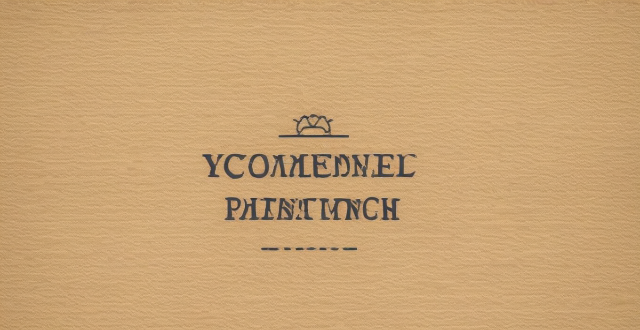
What are some common mistakes to avoid in academic writing ?
Avoid common mistakes in academic writing, such asAvoid common mistakes in academic writing, such as, lack of clarity and precision overuse of passive voice, inappropriate word choice, failure to proofread, and ignoring feedback. These pitfalls can make your writing less effective and professional. By avoiding them, you can improve the quality of your academic writing and better convey your research and ideas to your audience.
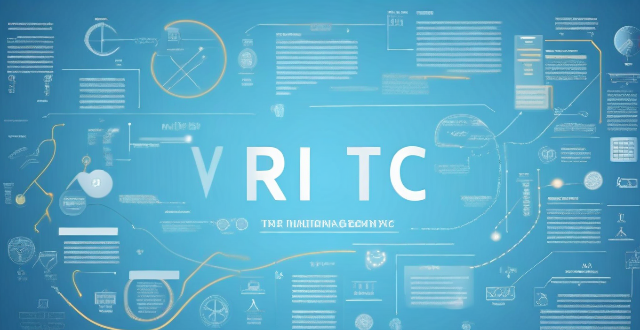
What are the key elements of academic writing ?
Academic writing is a form of writing that follows specific guidelines and conventions to ensure clarity, precision, and objectivity. Key elements of academic writing include a clear and concise title, an abstract summarizing the paper, an introduction setting the stage for the research, a literature review evaluating existing research, a methodology section describing the research design and procedures, a results section presenting the findings, a discussion interpreting the results, a conclusion summarizing the main points, and references listing sources. Appendices may also be included for supplementary materials.

What are some tips for editing and revising my writing ?
Editing and revising are crucial steps in the writing process that can significantly improve the quality of your work. Here are some tips to help you edit and revise your writing effectively: 1. Take a break from your writing to get a fresh perspective. 2. Read your writing out loud to catch awkward phrasing, grammatical mistakes, and typos. 3. Check for clarity and coherence within and between paragraphs. 4. Pay attention to sentence structure and vary sentence length to create rhythm and interest. 5. Use active voice instead of passive voice whenever possible. 6. Eliminate redundant words or phrases and be concise without sacrificing clarity or meaning. 7. Vary vocabulary by using synonyms to avoid repeating the same words. 8. Use spell-check and grammar-check tools, but also read through your work carefully to catch any errors they might miss. 9. Get feedback from someone else to spot issues you haven't noticed and offer valuable suggestions for improvement. 10. Revise your work multiple times to refine it further and make it stronger overall.

How can I improve my grammar and punctuation in writing ?
Improving grammar and punctuation skills is essential for becoming a proficient writer. Here are some tips: 1. Read widely to expose yourself to different styles of writing, grammar rules, and punctuation usage. 2. Practice active reading by analyzing sentence structure, vocabulary, grammar rules, and punctuation. 3. Write regularly to become better at using proper grammar and punctuation. 4. Get feedback from others to receive constructive criticism on your grammar and punctuation. 5. Use online tools and resources like grammar checkers, online courses, and grammar books to improve your skills. 6. Study grammar rules and punctuation guidelines focusing on parts of speech, sentence structure, and correct uses of punctuation marks. 7. Edit and revise your work thoroughly to ensure clarity, consistency, correctness, and completeness. Remember that mastering these aspects of writing takes practice and patience, so keep improving!

How might AI influence creative industries like music, art, and writing ?
AI is transforming creative industries, enhancing and augmenting the creative process. It influences music production, art generation, and writing by offering tools for composition, sound design, mixing, generative art, content generation, and real-time translation. AI also assists in music recommendation, art analysis, and proofreading. Despite its potential, AI should complement human creativity, as art's essence lies in unique perspectives and emotions that only humans can provide.
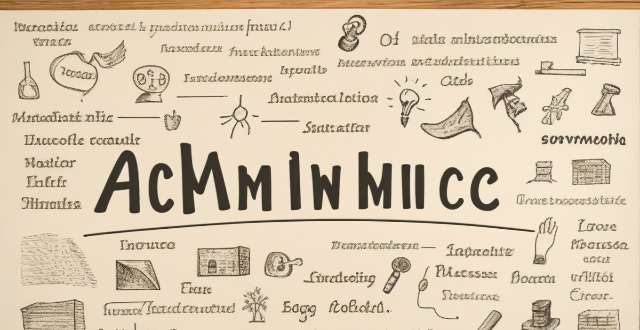
What are some tips for effective academic writing ?
Effective academic writing is essential for success in higher education. To improve your skills, understand the assignment, plan your work, conduct research, write clearly and concisely, use evidence to support arguments, edit and revise your work, follow academic integrity guidelines, use visual aids when applicable, stay focused on the main point, and seek feedback from others.

How do sports movies inspire people to pursue their dreams ?
Sports movies inspire people to pursue their dreams by showcasing compelling storytelling, relatable characters, overcoming obstacles, and celebrating achievement. These films serve as a source of inspiration for viewers to believe in themselves and strive for success in their own lives.
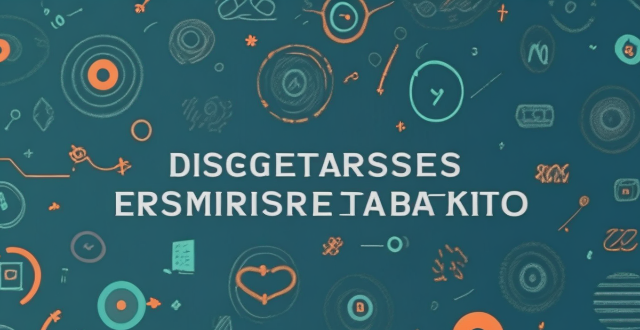
How do I cite sources in academic writing ?
The text discusses the importance of citing sources in academic writing and provides guidelines on how to do so. It emphasizes the need to choose a citation style that aligns with the requirements of the discipline or institution, use in-text citations appropriately, create a reference list or bibliography, potentially use footnotes or endnotes, and maintain consistency throughout the paper. The text also includes an example of citing sources in APA style.

How do female athletes use their platform to promote positive messages and inspire other women ?
Female athletes inspire and influence women of all ages by breaking stereotypes, advocating for equality, promoting health, overcoming adversity, giving back to the community, educating the youth, using social media wisely, and setting a positive example.

What ethical considerations should be taken into account when writing product reviews ?
Ethical considerations are crucial when writing product reviews to ensure trustworthiness and credibility. Reviewers should be honest, transparent, fair, and impartial, respect intellectual property, and be responsible towards readers. They must disclose any personal or financial interests, provide accurate information, avoid biased opinions, and refrain from making personal attacks. Comparative analysis should be fair, and language neutral. Original content is essential, with proper credit given where due, and copyright compliance maintained. Trade secrets should not be revealed, and trademarks or patents should not be infringed upon. The review's purpose should be clear, useful information provided, potential issues warned about, old reviews updated, and feedback engaged with. By considering these aspects, reviewers can contribute positively to the online community and build trust with their audience.

How can I overcome writer's block ?
The text provides various tips on how to overcome writer's block, such as taking breaks, changing the environment, writing about different topics, using writing prompts, and talking to others.

What impact do sports have on the emotional content of a story or poem ?
The impact of sports on emotional content in stories and poems is significant, evoking a range of emotions including joy, sadness, excitement, disappointment, triumph, perseverance, camaraderie, and friendship. Sports can inspire readers with the accomplishments of athletes who win competitions or achieve personal bests, create a sense of excitement and happiness among readers, lead to feelings of disappointment and sadness when an athlete fails to meet their goals or suffers an injury, inspire readers with the resilience and dedication of athletes who overcome injuries or setbacks to achieve success, showcase the importance of friendship and loyalty through teamwork and camaraderie, and evoke feelings of warmth and affection between characters in a story or poem. By incorporating sports into their writing, authors can create compelling narratives that resonate with readers on an emotional level.

What strategies can I use to overcome creative blocks ?
Overcoming Creative Blocks: Strategies and Techniques Creative blocks can be frustrating, but they're a common occurrence for many people. Fortunately, there are several strategies you can use to overcome them. In this article, we'll explore some of the most effective techniques for getting your creativity flowing again. Understanding Creative Blocks Before diving into strategies, it's important to understand what causes creative blocks. Here are some possible reasons: - Lack of inspiration - Fear of failure - Perfectionism - Stress and fatigue - Routine Strategies for Overcoming Creative Blocks Now that we know some potential causes, let's look at strategies for breaking through those barriers. Change Your Environment Sometimes a change of scenery is all it takes to spark new ideas. Try working in a different location, such as a coffee shop, library, or park. Even rearranging your workspace can help stimulate creativity. Take Breaks and Rest It's essential to give your mind time to recharge. Step away from your work and engage in activities that relax you, like taking a walk, meditating, or listening to music. Often, solutions come when you're not actively trying to find them. Set Small Goals Breaking down a large project into smaller, manageable tasks can help alleviate feelings of overwhelm. Focus on one small aspect at a time and celebrate each accomplishment. Embrace Imperfection Remember that creativity doesn't have to be perfect. Give yourself permission to create something messy or incomplete. You can always refine it later. Collaborate with Others Working with someone else can bring fresh perspectives and ideas. Brainstorm with friends, colleagues, or an accountability group. Their input might be just what you need to break through your block. Practice Mindfulness and Meditation Mindfulness exercises and meditation can help clear your mind and reduce stress, making it easier to access your creative thoughts. Even a few minutes of deep breathing can make a difference. Engage in Other Creative Activities Sometimes engaging in another form of creativity can spark ideas for your main project. Try drawing, writing poetry, or playing music – anything that gets your creative juices flowing. Use Writing Prompts or Creative Exercises Writing prompts or creative exercises can provide structure and guidance when you're feeling stuck. These can be found online or in books dedicated to helping artists and writers overcome blocks. Seek Inspiration from Other Art Forms Look at art, listen to music, watch movies, or read books in genres different from your own. Exposure to other forms of creativity can inspire new ideas and approaches in your own work. Keep a Journal or Sketchbook Regularly recording your thoughts, dreams, and ideas can help you tap into your subconscious mind. A journal or sketchbook becomes a repository for potential projects and solutions to creative blocks.

What are the most prestigious awards in the entertainment industry ?
The entertainment industry has several prestigious awards that recognize outstanding achievements in various fields such as acting, directing, producing, and music. Some of the most notable awards include the Academy Awards (Oscars), Emmy Awards, Grammy Awards, Tony Awards, Golden Globe Awards, BAFTA Awards, Critics' Choice Awards, and MTV Movie & TV Awards. These awards not only honor talented individuals but also set the benchmark for excellence in the industry.

How can social media be used to mobilize young people for climate action ?
The text discusses how social media can be utilized to engage and mobilize young people for climate action. It outlines strategies for raising awareness, fostering dialogue, and driving concrete actions through educational content, influencer partnerships, hashtag campaigns, discussion forums, interactive polls and surveys, user-generated content, volunteer opportunities, online activism, and practical tips for sustainable living. The conclusion emphasizes the potential of social media as a tool for social change and calls for its wise use to shape a brighter future.
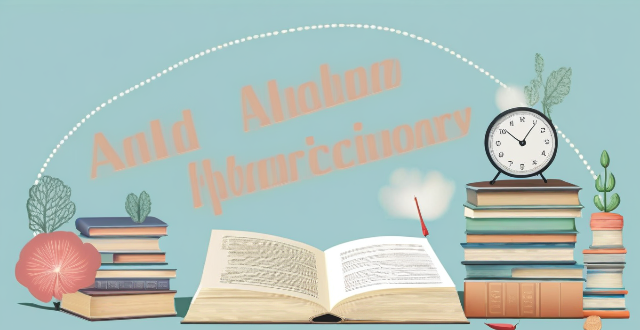
What techniques can I use to enhance my imagination ?
Enhancing Your Imagination: Techniques and Strategies. Reading widely, exploring new experiences, practicing mindfulness, engaging in creative activities, collaborating with others, embracing curiosity, keeping a journal, and setting aside time for daydreaming are all effective ways to enhance your imagination. These techniques can help you generate new ideas, solve problems, and experience the world in unique ways.

What role do teachers play in promoting climate education ?
Teachers play a pivotal role in climate education by enhancing awareness, fostering critical thinking, encouraging ethical responsibility, and promoting active engagement among students. They achieve this through various methods including providing scientifically accurate information, facilitating understanding, stimulating inquiry, analyzing data, integrating sustainability principles, and designing practical projects. Furthermore, teachers prepare students for future challenges by highlighting climate-related careers and fostering lifelong learning about environmental issues. Overall, educators are instrumental in guiding students towards becoming informed citizens capable of addressing the complexities of climate change and contributing to a sustainable world.